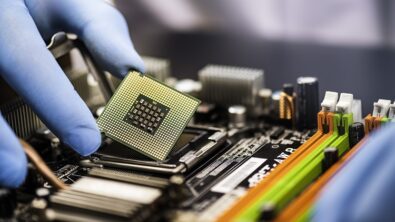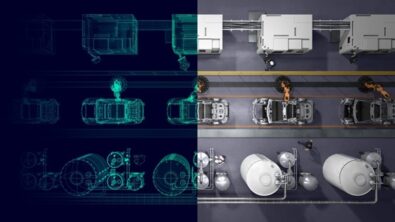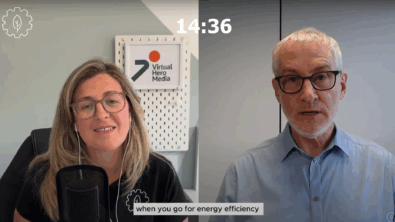Digital transformation and optimizing the whole ecosystem

Digital innovation continues increasing at exponential rates. The countless number of electronics that encompass our lives is changing everything from how we travel, communicate and even exercise.
This pace of digital transformation will accelerate even more rapidly as more companies begin to incorporate artificial intelligence (AI) and machine learning (ML) into their systems to manage the vast amounts of data collection.
What happens to companies and manufacturers that aren’t digitally robust? The realities of the COVID-19 pandemic have laid bare the frailties of these businesses lacking a comprehensive digital mindset. If there’s anything businesses have learned over the past couple years it’s that disruption comes in many forms, seemingly without notice, and the need to invest in the digital future.
The evolution into ecosystem companies
The ecosystem in its entirety consists of electrical, software and mechanical systems and the network connecting all those systems integrated into smart business environments, smart factories, smart infrastructure and smart cities – it’s the whole ecosystem your enterprise or your customers’ enterprises are building.
To deliver optimal, safe, secure and truly innovative products to market requires designing, verification/validation and testing the functionality of each of these systems individually. It also requires testing these functionalities together virtually in the context of the end-system or entire ecosystem. After that, it’s committing to manufacturing. And after manufacturing, the data from the end-product running in the field and the manufacturing processes can be analyzed and used to optimize manufacturing and business processes.
Look no further than Apple to get a glimpse of what is meant by the whole ecosystem. Everything from Apple TV and Apple Pay to iTunes and the products like iPhones and Macbooks is part of the ecosystem and feeding off one another to supply data which can in turn optimize product development.
Apple, and other technological behemoths like Microsoft and Google, are finding their success by designing with the end-system ecosystem in mind.
Digital transformation roadmap
Digital transformation is a perpetual journey. To stay viable and competitive, companies must continually update and improve their digital transformation and partner with like-minded companies in their supply chain.
Siemens EDA is dedicated to helping more companies advance in their digital transformation and engineer a smarter future faster.
Read our exclusive white paper to learn more: Digital transformation: How Siemens EDA helps you engineer a smarter future faster

